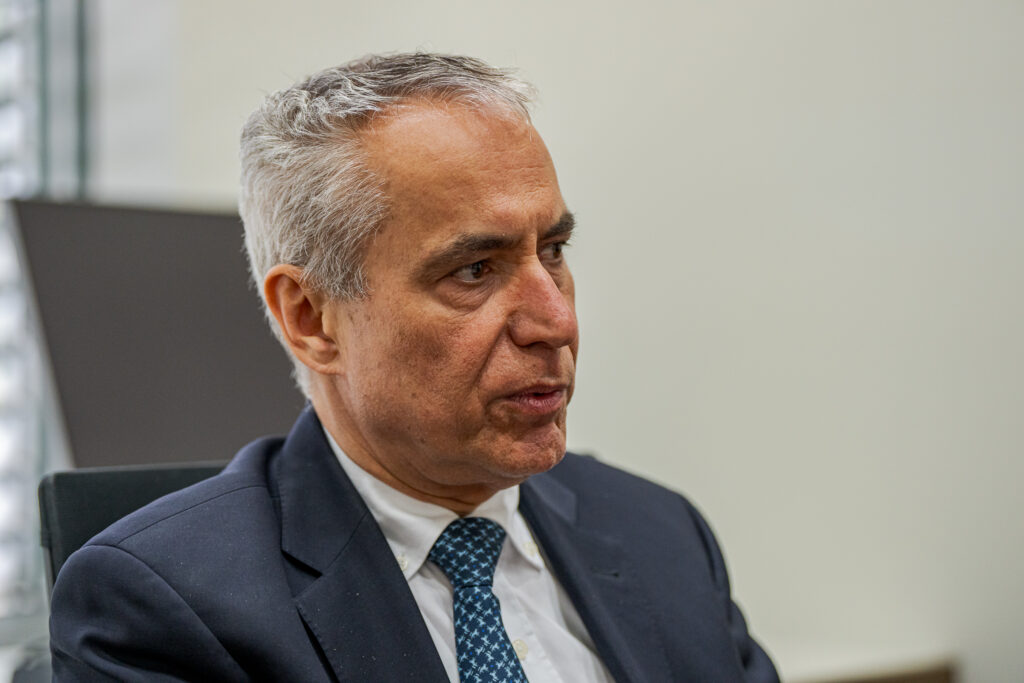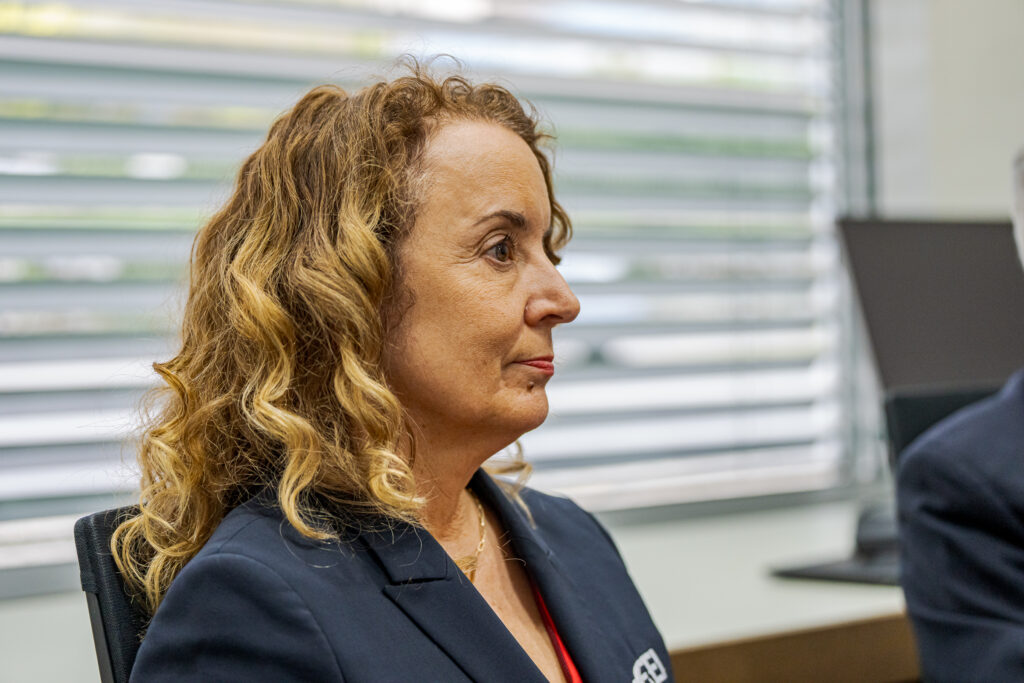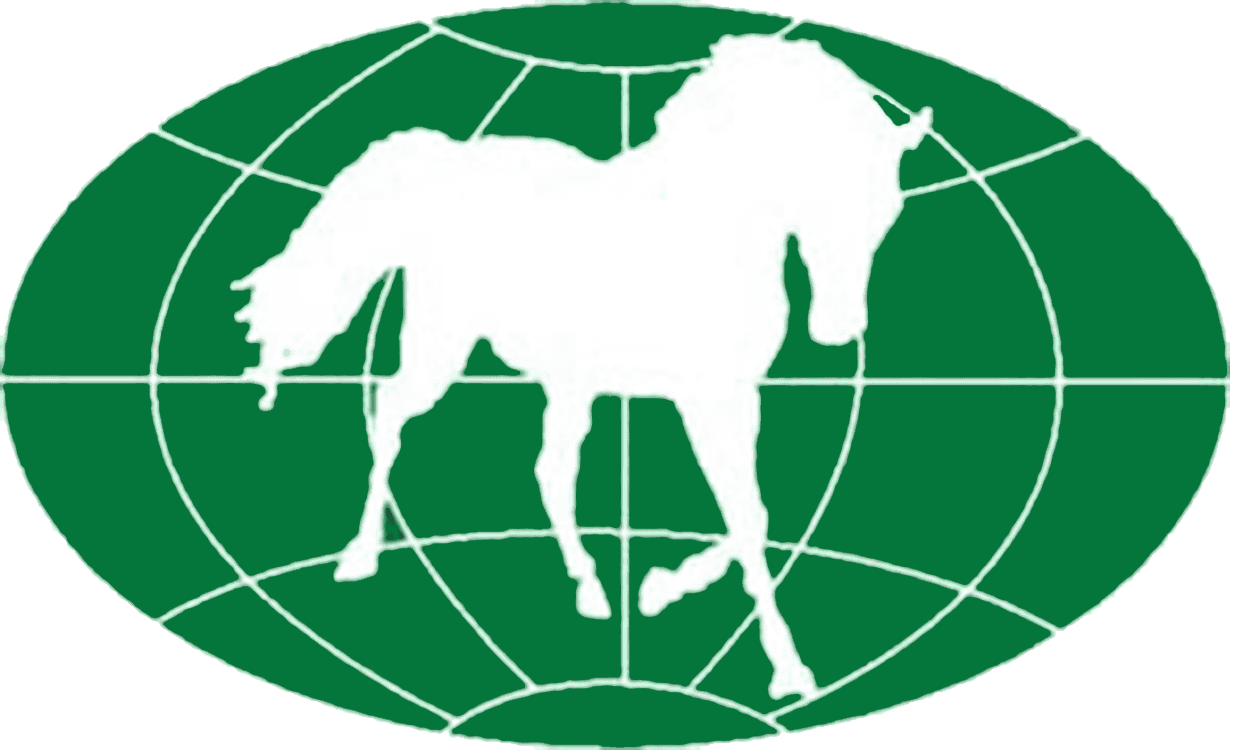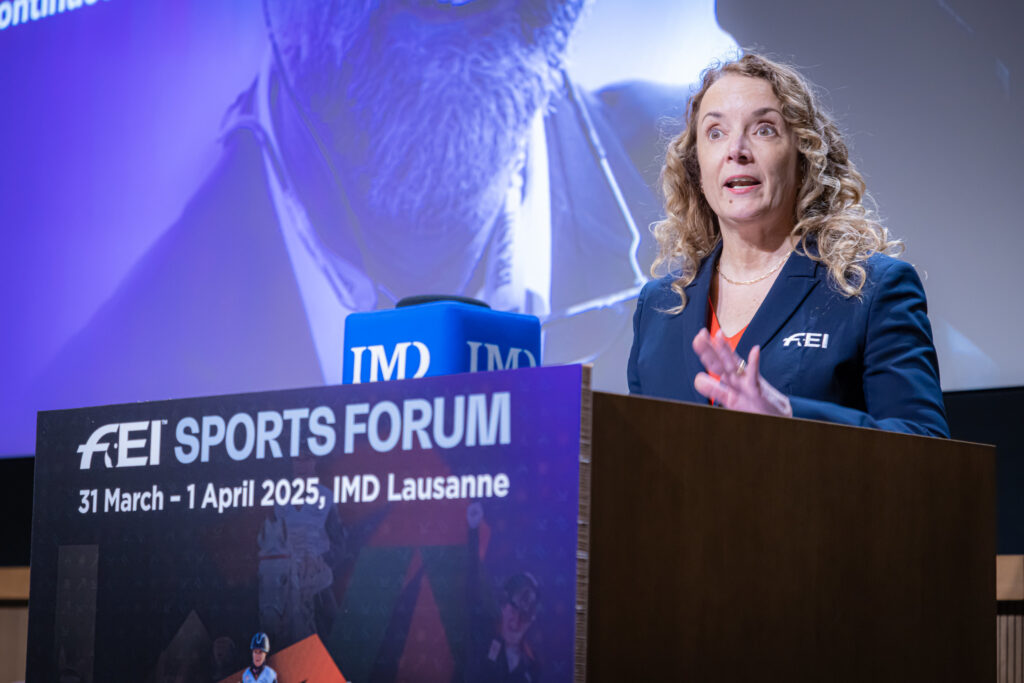Closing Remarks by FEI Secretary General Sabrina Ibáñez
“This time, just to reflect on what we have achieved over these past two days.
The first session brought us the proposed qualification systems for LA 2028 — both for the Olympic and Paralympic Games — and the main takeaway is this: we don’t want to change too much. It worked. Don’t change what is not broken.*
That said — and I can’t stress this enough — we have a lot of work to do. A lot of work. Across disciplines, across departments, across the organisation. This Sports Forum has made that crystal clear.
We’ve had deep discussions on rules and formats, on welfare and education, on Olympic pathways and the governance of our own federation. It’s been a demanding two days — and that’s a good thing.
Thank you for your attention, your energy, and your engagement.”
*)Note, here the FEI Secretary General actually said the opposite: Don’t change what is broken – but most had their minds on the cocktails at this point.
Press Conference with FEI President Ingmar De Vos and Secretary General Sabrina Ibáñez
Held in a packed meeting room with around a dozen journalists present and more joining online via Zoom, the press conference that followed the FEI Sports Forum 2025 allowed the media to follow up on key themes and breaking topics. Below is a cleaned-up Q&A, with full answers preserved and journalist names included when identifiable.
Ingmar De Vos:
Because it’s our annual gathering, it’s good to see so many of you here — both in person and online. We had around 300 Forum participants this year, from over 65 countries. That shows how relevant the Sports Forum has become. Your presence, both media and delegates, proves its necessity in our decision-making process.

On the LA 2028 Olympic Venue
Alban Poudret (SUI):
The site for the LA Games still isn’t confirmed. Last year we thought it would be Temecula. Is the issue climate? Location? Why the delay?
Ingmar De Vos:
The venue has not been finalized. The Organising Committee is still evaluating options — climate, cost, logistics — all under IOC guidelines that stress cost efficiency. They’re finalising cost calculations and will present a proposal to the IOC Executive Board by 9 April. We are not the only sport under review, so patience is key.
Sabrina Ibáñez:
Jumping and dressage are confirmed. Eventing is confirmed on the condition that all three phases happen in one venue. No cross-country, no eventing — that’s our red line. We’re also factoring in cost efficiency, and the IOC Programme Commission is meeting right now. We’re awaiting final confirmation.
On Broadcasting Success and Olympic Relevance
Kim C Lundin (IAEJ):
In your presentation yesterday, you said dressage was the most popular broadcast part and had helped secure equestrian sport’s position in the Olympic family. Could you elaborate?
Ingmar De Vos:
After London 2012, the IOC started evaluating each event’s contribution to the Games via broadcast, digital, and written media. Despite fantastic sport and venues, we were downgraded. Princess Haya challenged it — rightly so — because comparing us to mega-sports with 200+ nations is unfair.
Over time, we improved. Campaigns like Two Hearts and Bound Like No Other, better communication, and smarter tools boosted engagement. In Paris, we saw a 30% improvement from Tokyo. The IOC Director General even called to congratulate us.
Also key: the IOC’s new hospitality partner, On Location, sold out of equestrian packages and said they could have sold three times more. Equestrian sport has commercial value, too. That reinforces our position.
On Presidential Legacy and Governance
Kim McMillan (Horse Illustrated, USA):
What would you like your legacy to be as you eventually leave office?
Ingmar De Vos:
To leave the FEI in good hands and financially healthy. When I started, our financial situation was less stable. Today, we’re stronger and able to invest in services for athletes, organisers, and officials. That’s key to sustainable growth.
On Horse Welfare Progress and Accountability
Kim C Lundin (IAEJ):
We heard last year there were 52 action points in the FEI Equine Welfare Strategy. Now we hear there are 37. How do you feel about the pace of progress? Are things moving fast enough?
Sabrina Ibáñez:
We are moving at speed — and yes, we do have someone in-house who won’t let us forget it! There are regular, sometimes weekly, internal meetings to track progress on each action point. We’re also doing our day-to-day safeguarding and regulatory work alongside this.
Ingmar De Vos:
We’ve restructured internally to support this better. The Veterinary Department has been reframed and renamed the Welfare Department. That change comes into effect on 1 June. We’re preparing the FEI for the future.
On Engagement with Equitation Science
Pippa Cuckson (online):
FEI seems to be engaging more openly with the Equitation Science community. Andrew McLean’s presentation was well received. But how can the FEI encourage riders to be more receptive to alternative training approaches that might challenge traditional practices?
Sabrina Ibáñez:
The people on our Ethical Training Methods Working Group are respected experts. Their credibility makes it harder to dismiss the science. Riders are listening. The mindset is changing. Even top athletes who once said, “Welfare isn’t an issue at our level,” now say, “We need to act.” That shift is real, and we’ll continue supporting it.
Ingmar De Vos:
The Dressage Working Group is a great example. Strong, diverse personalities reached consensus quickly. That proves there’s an appetite for progress. We’re on the right track.
On Timeline for Dressage Rule Revisions
Timothée Pequegnot :
The Dressage Working Group has presented many ideas already. But more concrete proposals will be needed. What timeline are you working on?
Sabrina Ibáñez:
We expect concrete proposals by the time of the General Assembly. In the meantime, the Technical Committee will be more involved. Some best practices may be implemented earlier, especially around public communication or image, even before formal rule changes.
On Future Olympic Formats
Sébastien Roullier:
You said it might still be possible to discuss the Olympic format for 2028 next year. Is there really time to change the three-rider format, as the International Jumping Riders Club has requested?
Ingmar De Vos:
Technically yes, but practically it would be extremely difficult. The qualification system is built around teams of three. Changing to four would impact quotas, flags, and media value — and that affects IOC decisions. So for LA 2028, it’s very unlikely. But for Brisbane 2032? That’s a different conversation.
On the Future of FEI Leadership
Kim C Lundin (IAEJ):
You two are known as the dynamic duo, having both served as Secretary General. Is it possible to be FEI President without that kind of experience? And, Sabrina, are you a candidate?
Ingmar De Vos:
Experience helps — whether as a rider, organiser, board member, or Secretary General. The sport and the organisation have become more complex. When I first met IOC President Thomas Bach, he told me, “You have the most complex federation of them all.” And I believe that’s true. Stakeholders stay involved for decades, and navigating all interests is no small task.
Sabrina Ibáñez:
It helps, but I wouldn’t make it a requirement. I’ve been with the FEI for a long time, in various roles, and I’m looking forward to seeing what the independent working group recommends about the President’s role and profile. Until then, I think it’s too early to talk about candidacy. Let’s see what the new structure looks like after June.

On Stakeholder Culture and Transparency
Diana De Rosa (Equus Television):
How does this Forum compare to past ones? It felt very engaged.
Sabrina Ibáñez:
It’s true. In the past, there was more tension. People feared that proposals were “decided already” and consultation was a formality. That’s changed. We built a culture of dialogue and mutual trust. Now people understand their input shapes the outcome.
We’ve also created more task forces and consultative groups involving athletes, organisers, officials, and national federations. These voices matter, and they’re now part of shaping the rules before they even reach the General Assembly. It takes time, effort, and yes, money — but it’s worth it.
Closing Note
The press conference concluded with a constructive tone, reflecting the engagement shown throughout the Forum. The final questions focused on FEI restructuring, leadership continuity, and the importance of lived experience in running a modern and complex sports federation.

